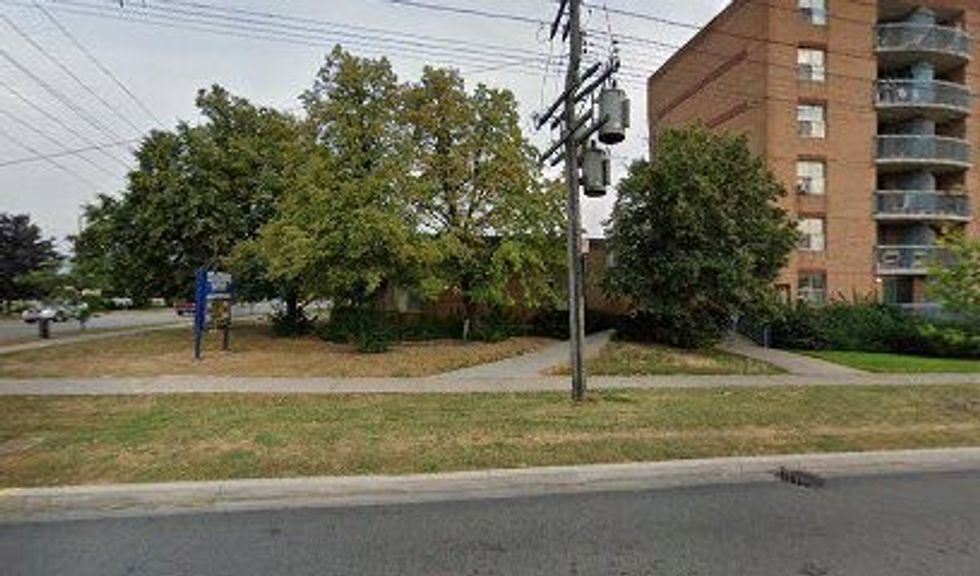Another church in the Greater Toronto Area (GTA) could be transformed to make way for rental units.
United Resource Property Corporation -- a developer known for building diverse and sustainable communities -- has submitted a development application to the City of Toronto that would see the partial demolition of a church to accommodate a new 10-storey residential rental building in Scarborough.
Located on the south side of Lawrence Avenue East, the land is currently home to the Church of the Master, which began as Bendale United in 1959. According to plans, the place of worship portion of the relatively small and modest church would remain intact.

The new 9,095-sq.-m building would house 112 residential units, including an affordable housing component. The existing six-storey, 6709-sq.-m apartment -- which features 48 subsidized housing units -- will be retained.
Designed by KPMB Architects, the proposed building would house one-, two-, and three-bedroom units and feature a large greenery-filled courtyard.
Notably -- at a time when many developments are moving away from the prioritization of the car -- the new development would feature 55 parking spots in an underground garage, despite its adequate TTC access. This is in addition to the property's 48 surface-level parking spots, bringing the total number of spots to 103. The development does not ignore the bicycle, however, and the application has proposed 148 parking spots dedicated to bikes.
This isn't the only church in the GTA set to undergo major transformations or be done away with completely as of late. Last month, it was announced that iconic Toronto music venue Hugh's Room could get a new lease on life with the transformation of an aging east end church. On other rental housing front news, another church (and a funeral home) on Toronto’s Danforth Avenue could be replaced with a nine-storey, mixed-use, purpose-built rental building.
At a time when both available land and housing supply remains scarce throughout the GTA, the solution may increasingly be found in these underused places of worship -- especially ones that sit on prime real estate.





















